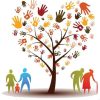Rediscovering Joy: Overcoming Feelings of Sadness and Hopelessness
Are you experiencing symptoms like staring off into space, feeling numb, crying without apparent cause, and an empty feeling within? Additionally, you may feel disconnected and avoid spending time with those who care for you; even when around others you can still experience feelings of loneliness and isolation.
Your sleep and eating patterns may have changed recently, with either more or less restorative sleep or eating taking place than normal. No matter the source, life can become exhausting as energy drains away quickly and it becomes difficult to focus on work, schoolwork, reading or simply social interactions with friends and acquaintances.
These feelings may be familiar or this could be your first experience with them. You might feel uncertain of what steps to take next or feel stuck, even though you know which ones would benefit. Activism might feel impossible or pointless.
The Depleting Effects of Depression
Depression can be deceptively insidious. People suffering from it often develop what’s known as “depressive realism,” wherein they believe the world or their life to be empty and meaningless – making it hard to identify the symptoms as depression itself. They may also believe others view life through rose-tinted glasses instead of seeing its sad reality for what it really is.
At times of extreme depressive episode, feelings of helplessness or even thoughts of death or suicide may arise. If suicidal tendencies become apparent, it is imperative that immediate assistance be sought – either calling 911 or visiting an emergency room near your location should this occur.
No one needs to experience depression alone, no matter if they feel isolated in life. No matter how hopeless or helpless it seems, help is available and waiting. Your life deserves to be one of peace, happiness, and joy; allow us to assist you in realizing this vision.
You Are Not Alone in Your Battle with Depression

Over 16 million Americans have reported at least one depressive episode in their lifetimes; this number increases considerably when considering those experiencing chronic mild depression (dysthymia), postpartum depression, bereavement or situationally-caused depressive episodes.
Depression may not be widely discussed, yet most individuals can relate to its effects and have likely sought treatment at one point or another in their lives.
Depression should never be seen as an indicator of weakness; rather, it represents an illness with biological and psychological origins that can negatively impact lives if left untreated.
Untreated depression can have serious repercussions in terms of social, financial, academic, medical and other aspects of a person’s life. Furthermore, depression often takes its toll on relationships and loved ones who witness suffering firsthand.
Seeking help for depression doesn’t signify weakness; rather, it indicates strength. While some individuals can tackle their problems on their own, many need professional assistance and turn to contractors, plumbers, electricians, surgeons or teachers to deliver essential services effectively and correctly.
Get Started Today!



